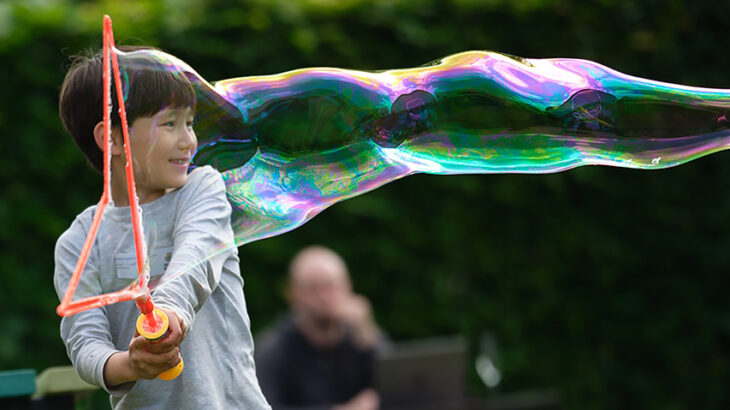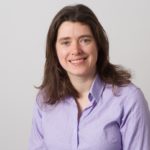Celebrating communities’ role in science

Universities are regional anchors and integral to their ‘place’ with many examples of collaborating on scientific research with communities. Here are some recent community-led research activities by our members.
Whether inner-city London, the rural east of England or the coastal towns of the Solent, our region’s communities are diverse and distinct and so are the issues they face. But people’s lived experience can enrich the research process and they can play a pivotal role in groundbreaking discoveries themselves.
This feature celebrates the contribution of our communities to research and projects that are genuine partnerships between local people and our members.
Overcoming challenges together
Science Together was launched in 2021 as a community-first engagement programme, coordinated by University of Oxford staff in partnership with Oxford Brookes University.
“Witnessing the transformative change at the grassroots level has been truly incredible”
Ngwari Mandrup, Connected Communications Service
This year’s community-led research collaborations were recently recognised in a Summer Celebration hosted by Science Together. This year’s projects involved 30 staff from across the two universities.
The programme aims to use cross-sector collaborations to overcome challenges and seize opportunities for people living and working in Oxfordshire.
Ngwari Mandrup, Connected Communications Service (CCS), Social Sciences Division and project facilitator with MES Creations said: “We often hear about Oxford University’s global impact, but witnessing the transformative change at the grassroots level has been truly incredible.
“It was a privilege to be part of Science Together, making a real impact in real-time, with real people addressing real-life challenges and solving real issues. Through this collaboration, I have not only witnessed the positive changes in our community but also forged friendships for life.”
Evidence and experiences
As part of the Great Exhibition Road Festival, Imperial College London has partnered with community broadcaster Portobello Radio for the second time, bringing scientists and west Londoners together to discuss issues that impact people’s everyday lives.
Radio host Piers Thompson spoke to Imperial experts and local residents during three episodes exploring why we sleep, the benefits of fixing things and gut health.
Piers said he was excited to bring together empirical evidence from research scientists and members of the community’s lived experience of the issues being discussed to explore solutions. “Everyone learned from each other as they talked about sleep, gut health and repair culture, providing our audience with easily digestible information and tips to improve their lives.”
Sleep researchers, Dr Sara Wong and Dr Berta Annucibay Soto, shared fascinating insights into why sleep is important – from how it can affect your perception of the world to what happens in your brain when you sleep.
They were joined by Lucy Woods from Grenfell Health & Wellbeing Services. She shared her own experiences of the after-effects of the 2017 tragedy, with the impact of the trauma causing sleep issues for many in the community.
Dr Wong said: “It was especially nice that they invited a local resident to chat with us, so we could really bounce back and forth about topics that were of concern and of interest to the local community.”
Elliott Latham from Imperial’s Dyson School of Engineering joined Nick Williams from West Central London Fixers to explore why people choose to fix items rather than buy new.
“This has been such an exciting project to be a part of, and it’s excellent to start sharing our results and help advance the conversation on repair,” said Elliott. “The full project results are due to be publicly available shortly. Watch this space!”
Active listening
Listening Cafés were launched in 2019 as collaboration between the University of Southampton and local Family Hubs, which support residents across the city. The initiative connects university researchers with underserved communities, offering a safe space to share experiences to help shape health and social care research over informal conversations, food and craft.
“I could help someone else in the future by aiding the research and putting my experiences into it”
Nadine Crew, Listeneing Café participant
Listening Cafés usually meet for three to four weeks to focus on a particular research project. A follow-on session explores how people’s input has influenced the study and provides an update on study progress.
Nadine Crew, a parent who took part in a three-week Listening Café on mental health research said: “I struggle with my own mental health, and to think I could help someone else in the future by aiding the research and putting my experiences into it, that felt like I was doing something really positive for my community.
“It was comforting to know that I’m not the only one experiencing these issues and it was amazing to see that my experiences were being listened to, valued and used to help their research.”
Adam Geraghty , formerly Associate Professor of Psychology and Behaviour Medicine at the University of Southampton said: “I now think that reaching out in a range of ways to diverse communities is critical. It will help to ensure the research we do is most likely to have a benefit for a broad range of our society.”
Thank pod for that!
‘Oh Pod! x UCL’ is a mental health podcast series hosting honest discussions between researchers and communities in east London.
Funded by UCL East Engagement’s Development Fund, the podcast project provides a platform to open the dialogue between academics and people from marginalised communities in east London on issues pressing to the public.
Guests include Dr Kate Adlington discussing perinatal mental health, Professor Kurinchi Gurusamy discussing Autism and Professor Oliver Robinson discussing anxiety and psychological distress.
Project leaders are UCL academics Dr Rupy Matharu and Dr Shoba Poduval, with Shakira Crawford and Iman Issa-Ismail hosting.


